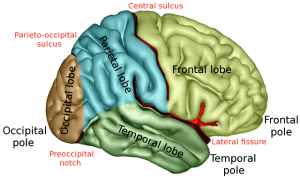“What exactly is executive function?” Oh I still ask myself that question when trying to understand the brain and executive function. We know it’s important – it is what enables us to play a chess game, figure out a problem, use the intelligience we have.
Today I will try and explain more about the brain and executive function.
Oh yes – right there is an example of the brain and executive function. Preparing an explanation about executive function – requires the use of executive function to try and make ‘Executive Function’ understandable. Phew!!!
How so?
To write about the brain and executive function I needed to –
[unordered_list style=”green-dot”]
- Review and sort information I have gathered from the past.
- Make decisions about what information is in, and what is out.
- Think about who might read this and what the reader needs.
- Finally I need to write it up in a simple way and publish it.[/unordered_list]
This relies on more than the facts I already know. I need a plan. I need to make decisions. I need to imagine my readers.
What are Executive Functions?
[box size=”large” style=”rounded” border=”full”]Executive functions are managers – they help us direct, regulate and control brain functions – enabling us to manage all aspects of our life. Such as organisation, helping us regulate our behaviour and thinking. [/box]
I am not 100% happy with that definition. If anyone has a simple, clear definition of the brain and executive function please share it in the Comments below.
Maybe this example might help make it a little clearer:
“Simply stated, you do not need executive control to grab a beer, but you will need it to finish college” (“Executive function and higher-order cognition: Definition and neural substrates”)
Types of Executive Function
Describing the brain and Executive Function in an article on Frontotemporal Dementia the University of California gives another example:
“Seeing a wonderful dessert in front of you may be tempting to devour, but your executive system might remind you that eating it would conflict with your inner goals, such as losing weight. That long range thinking and reasoning is typical of the executive system.”
The article lists functions under the headings organisationand regulation:
“Organization: attention, planning, sequencing, problem solving, working memory, cognitive flexibility, abstract thinking, rule acquisition, selecting relevant sensory information
Regulation: initiation of action, self-control, emotional regulation, monitoring internal and external stimuli, initiating and inhibiting context-specific behavior, moral reasoning, decision-making.”
Changes in executive function are common after brain injury particularly frontal lobe damage. A helpful list of strengths (the brain and executive function working well) and weaknesses (what can happen when the brain and executive function are damaged) are listed in the“Adult Checklist for Executive Functions Strengths and Weaknesses”. Here is just one example in relation to communication:
A strength – is the ability to see other people’s perspectives. An example being you are a good listener and thoughtful in times of stress for others.
A weakness – would be having difficulty understanding verbal cues such as social conventions and personal boundaries. An example being the person dominates conversations, does not listen to others, does not pick up on cues to stop talking.
We Need Executive Function When –
Our executive functions help out with the complex tasks of the brain and particularly the frontal lobe . Many functions of the brain happen without us thinking or trying – breathing, our heart pumping. Others are regular jobs the brain can do with ease – doing everyday and familiar tasks.
Our executive functions are needed at other times when:
- something new happens – I have used an analogue mobile phone for many years and then I get a Smartphone – a whole lot of new learning to be laid down.
- we need to over-ride a habit or desire– I wake up, it is very cold and my body wants to stay in a warm bed but I need to go to get myself to the gym.
- something out of the ordinary happens and a quick solution is needed– I am on my way home and find a fallen tree blocking the road. I have to think of a way to get past or around it to get home.
In each of these situations the brain needs an extra dash of skilled thinking. Executive function is that special force that handle situations that are out of the ordinary or complex.
Norman and Shallice list the following situations where executive functions are needed:
[unordered_list style=”green-dot”]
- Situations that involve planning or decision making
- Situations that involve error correction, or trouble shooting
- Situations where responses are not well-rehearsed or contain novel sequences of actions
- Dangerous or technically difficult situations
- Situations that require overcoming strong habitual response or resisting temptation[/unordered_list]
For More Information About Executive Function
The Executive Brain – Frontal Lobes and the Civilized Mind by Elkhonon Goldberg 2001. This book is a bit of a favourite of mine. The frontal lobes and executive function are described in a readable form with lots of examples.
For a more detailed and technical look at Executive function this article “Executive Functioning – Where is it Controlled and How Does it Develop? / Remediation Techniques for Deficits and Dysfunction”
Examples of executive disfunction are explained in the article by Ira J. Chasnoff M.D. “Executive Functioning and the Troubled Brain”

